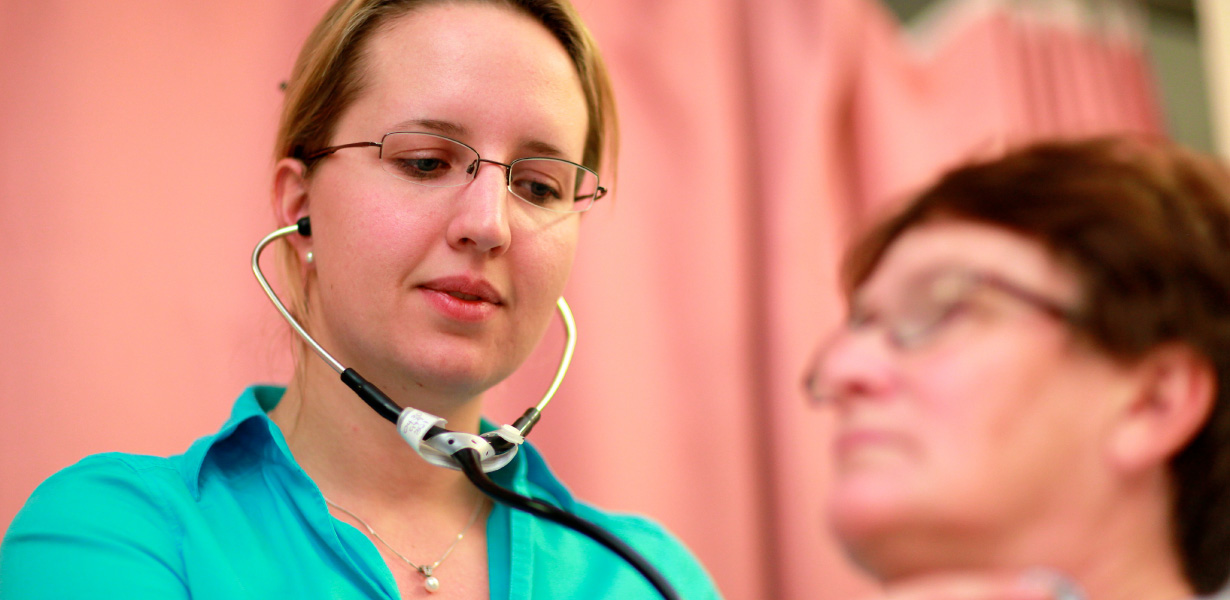Description
Practical Nurses care for the sick, injured, convalescent and disabled under the direction of physicians and registered nurses. Healthcare employment opportunities are available in long term care, home health, hospitals and outpatient settings. Clinical experience is provided at extended care facilities and hospitals.
Objectives
This program will prepare students for an entry-level position as a Practical Nurse. The program will familiarize the student with the techniques and procedures of basic bedside care. Students will learn how to take vital signs such as, temperature, blood pressure, pulse and respiration. In addition, students will observe patients and report adverse reactions to medications or treatments, collect samples for testing, perform routine laboratory tests, feed patients, and record food and fluid intake and output. Experienced practical nurses may supervise nursing assistants and aides.
Admission Requirements
- Have a high school diploma or G.E.D. or equivalent
- Submit Application
- Pass School Entrance Assessment by obtaining a minimum score of 39.0 on the ATI TEAS exam
- Submit Written Essay
- Interview with the Practical Nurse Program Panel
Prerequisites:
- Level II Background Check and Fingerprinting
- 10 Panel Drug Screen
- Abuse registry clearance
Additional Prerequisites:
- Provide TB Test and or/Chest X-ray documentation
- Provide documentation of Health Exam
- Provide current Immunization Documentation
Practical Nurse Diploma
Course Outline
To receive a diploma in Practical Nurse, students must complete 43.0 credit hours (1350 instructional clock hours). This diploma program can be completed in 12 months for full-time students.
Core Courses: 43.0 credit hours
The following courses are taken in the sequence listed below:
| Credit Hours | Clock Hours | Federal Student Aid | |
| PRN 0004C: Practical Nursing I | 17.5 | 526 | 14.03 |
| PRN 0120C: Practical Nursing II | 14.0 | 484 | 12.90 |
| PRN 0306: Practical Nursing III | 11.5 | 468 | 12.48 |
Practical Nursing Diploma
Course Outline
To receive a diploma in Practical Nursing, students must complete 45.5 credit hours (1238 instructional clock hours). This diploma program can be completed in 12 months for full-time students.
Core Courses: 45.5 credit hours
The following courses are taken in the sequence listed below:
| Credit Hours | Clock Hours | Federal Student Aid | |
| PRN 101: Practical Nursing I | 8.0 | 180 | 6.0 |
| PRN 102: Practical Nursing II | 7.5 | 200 | 6.67 |
| PRN 103: Practical Nursing III | 7.5 | 200 | 6.67 |
| PRN 104: Practical Nursing IV | 8.5 | 220 | 7.33 |
| PRN 105: Practical Nursing V | 8.0 | 240 | 8.0 |
| PRN 106: Practical Nursing VI | 6.0 | 198 | 6.0 |
PRNI0I: Practical Nursing I (8.0 Credits)
This course introduces the student to the role of the practical nurse in the healthcare delivery system. Legal and ethical considerations affecting nurses are presented. The North Carolina Nurse Practice Act is reviewed. Critical thinking, the nursing process, and clinical judgement are described. Professionalism, accountability, and responsibility are discussed. Computer and library skills are developed. The concepts of wellness and illness are presented. Holistic healthcare and the influence of culture and spirituality on health seeking behaviors are explored. Health promotion and maintenance strategies are introduced. The advantages of concept mapping are demonstrated.
Included in this course are the basic math skills needed for metric conversions and non-parenteral medication dosage calculations; and the normal structure and function of the human cell and body systems (integumentary, musculoskeletal, sensory, neurological, and endocrine). The principles of nutrition are presented. Medical terminology is integrated throughout the course.
In the skills lab portion of the course, safety, infection control, and basic care and comfort measures are demonstrated. Foundational assessment skills and client care procedures are practiced.
PRN I02: Practical Nursing II (7.5 Credits)
This course presents the structure and function of several body systems including the respiratory, cardiovascular, renal/genitourinary, gastrointestinal, immune systems, an overview of the components of blood, and common laboratory values. The concept of family is presented. The body changes during pregnancy and delivery are detailed along with fetal development. High risk pregnancy and newborn complications are reviewed. The principles of pharmacology are introduced, and dose calculation methods are continued. Growth and development across the lifespan are described including physical norms and the theories of psychosocial, cognitive, and moral development, and Maslow’s Hierarchy of Needs. Medical terminology is integrated throughout the course. In the nursing skills lab assessment skills specific to the systems being studied are developed and refined. Non-parenteral medication preparation and administration are practiced.
PRN I03: Practical Nursing III (7.5 Credits)
Risk factors, etiology, manifestations, and basic pathophysiology are presented for common conditions of the integumentary, musculoskeletal, sensory, neurological, and endocrine systems. Treatment modalities, pharmacotherapeutics, nursing considerations, and health promotion and maintenance strategies are discussed. Concept mapping of conditions within each system enables the students to identify commonalities and provide a focus for nursing prioritization and intervention.
Calculation of IV drip rates, preparation, and administration of IV piggyback medications are demonstrated and applied. Medical terminology is integrated throughout the course.
PRN I04: Practical Nursing IV (8.5 Credits)
This course continues to explore the risk factors, etiology, manifestations and pathophysiology, treatment modalities, pharmacotherapeutics, nursing considerations, and health promotion and maintenance of common disorders of the respiratory, cardiovascular, renal, genitourinary, gastrointestinal, blood, and immune systems. Evidence-based nursing interventions are discussed. The results of implementing those interventions as determined by the formulation of desired patient/client objectives are introduced.
PRN 105: Practical Nursing V (8.0 Credits)
The practical nurse’s role in caring for clients with common mental health, behavioral, and/or developmental disorders is explored and applied in relevant clinical settings. Additionally, complex medical, surgical, and emergency situations are introduced and the practical nurse’s contributions to the management of these issues are examined. End of life practices and procedures are discussed.
Emphasis continues to be placed on providing culturally congruent care, applying the nursing process, utilizing therapeutic communication, and working collaboratively to ensure optimal client objectives. Psychosocial concerns are incorporated in the discussions. Client safety and privacy are integrated throughout the course.
Students will be exposed to a variety of clinical experiences to introduce the student to acute and rehabilitative facilities, and community resources.
PRN106: Practical Nursing VI (6.0 Credits)
This course prepares the student to transition to practice as a Graduate Practical Nurse and to successfully complete the NCLEX-PN exam. The clinical portion of the course affords the opportunity for students to demonstrate their ability to apply their clinical judgement skills while providing safe, effective, culturally sensitive nursing care to multiple clients/patients.


